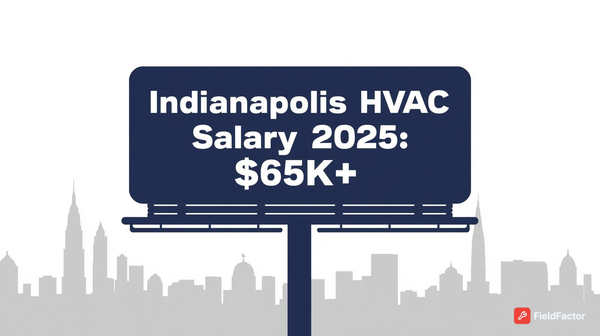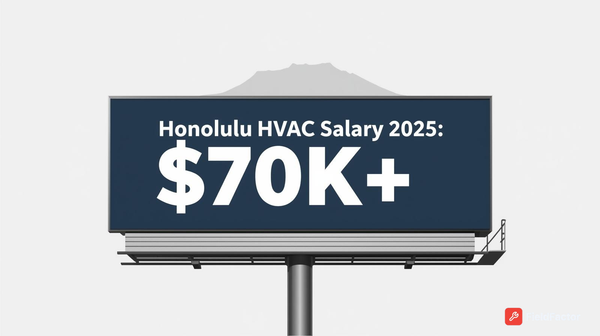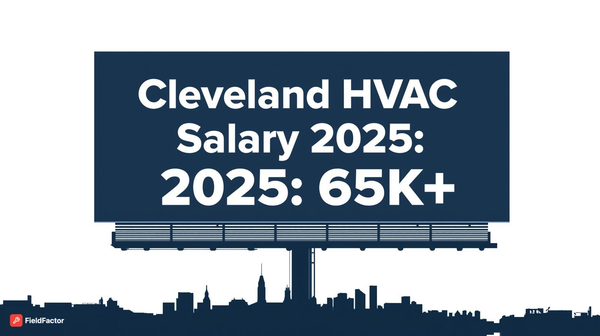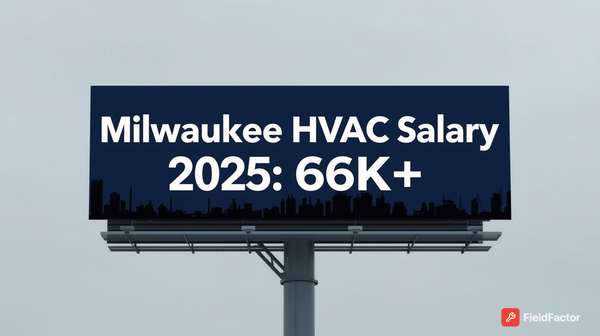The Top 8 Trades Paying $100K+ Without a Degree (And Why They’re Beating Tech)
STOP paying the degree tax. The elite shift to skilled trades is real. See how HVAC owners find top talent earning 6 figures, debt-free.

By: The Field Factor Team | October 4, 2025
Why the Value of a Single Skilled Technician Has Never Been Higher
The skilled trades are entering a golden era of growth. Driven by a perfect storm of retiring Baby Boomers, massive federal infrastructure upgrades, and the sweeping clean-energy build-out, the HVAC market is experiencing unprecedented, non-stop demand. For business owners, this convergence creates both a challenge and an explosive opportunity: the value of a reliable, skilled technician is higher than ever, and those who secure talent now will dominate the $95 Billion market of tomorrow. This deep dive unpacks the data that guarantees job security for your team and massive revenue potential for your firm.
Methodology
The data and salary figures presented are derived from the U.S. Bureau of Labor Statistics (BLS) Occupational Employment Statistics (May 2024 median salaries) and the latest BLS Occupational Outlook Handbook (2024–2034 projections). Growth notes are cross-verified with major industry association and trade organization reports. Note that specific pay rates, regional growth, and career potential vary significantly by city, union status, and specialized certifications.
Quick Comparison: Top-Paying Trades at a Glance
The demand for skilled labor is high across the board. The following trades set the competitive pay benchmark for the blue-collar economy, demonstrating the compensation floor and ceiling your firm must compete against for talent.
*(BLS OES, May 2024 national medians. Note that local pay rates, union density, and overtime often push pay 15–30% higher in major coastal metros.)
1. Elevator & Escalator Installers: $106,580 Median
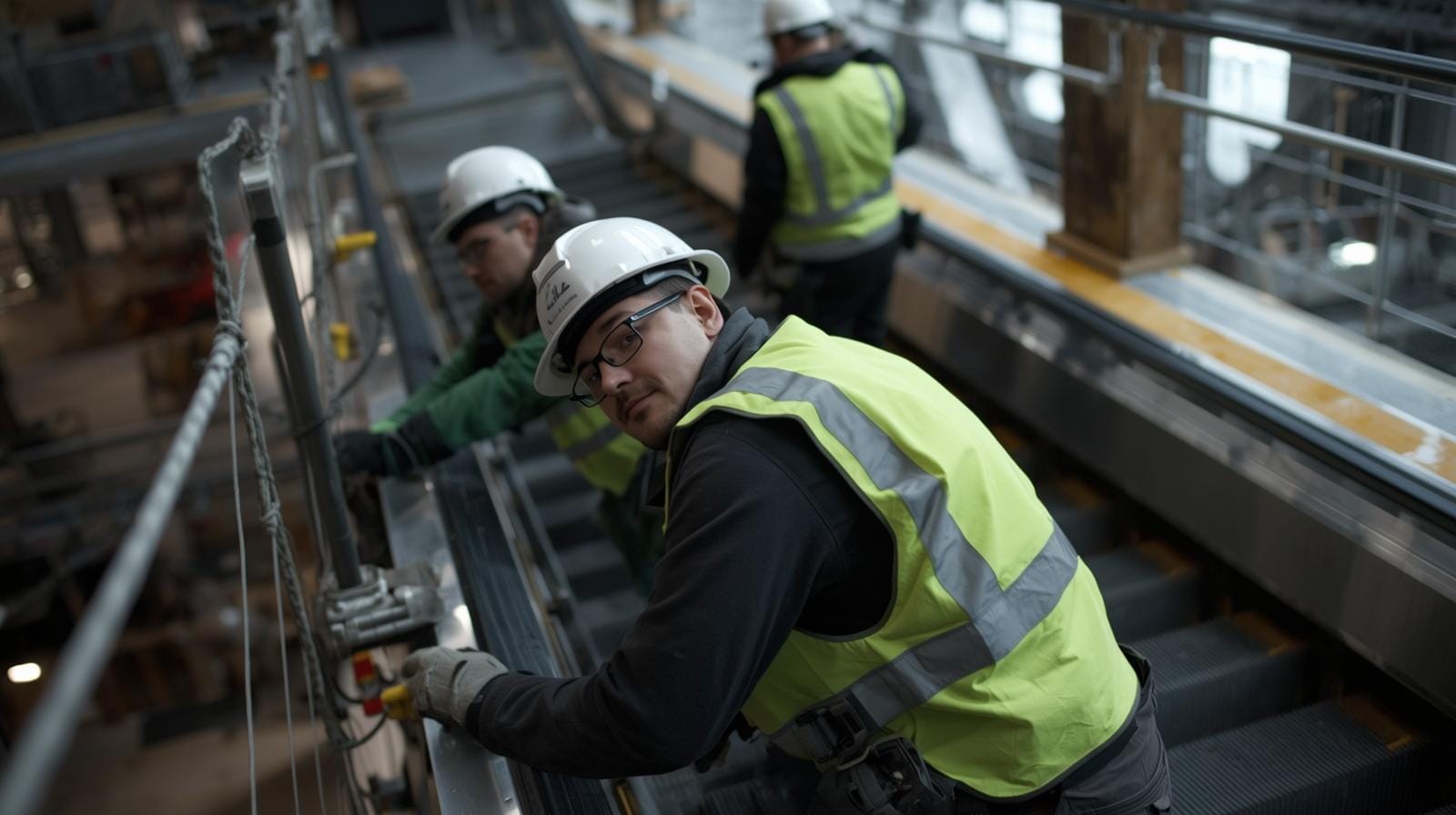
This high-value trade sets the bar for what specialized skills and liability can command in the blue-collar economy.
- Median Salary: $106,580
- What They Do: Install, maintain, and repair safety-critical vertical transportation (elevators, escalators, moving walkways) in commercial and residential buildings.
- Why It Pays: Safety-Critical Systems and Strict Codes; Mandatory 24/7 Service Contracts; Strong Union Density and frequent Overtime.
- How to Start: Union apprenticeship (e.g., IUEC) is standard.
- Level-Up Fast: Secure OEM certifications (Otis/KONE/Schindler/TK).
- Top Markets: NYC, Chicago, Los Angeles, Boston, Seattle.
2. Boilermakers: $73,340 Median
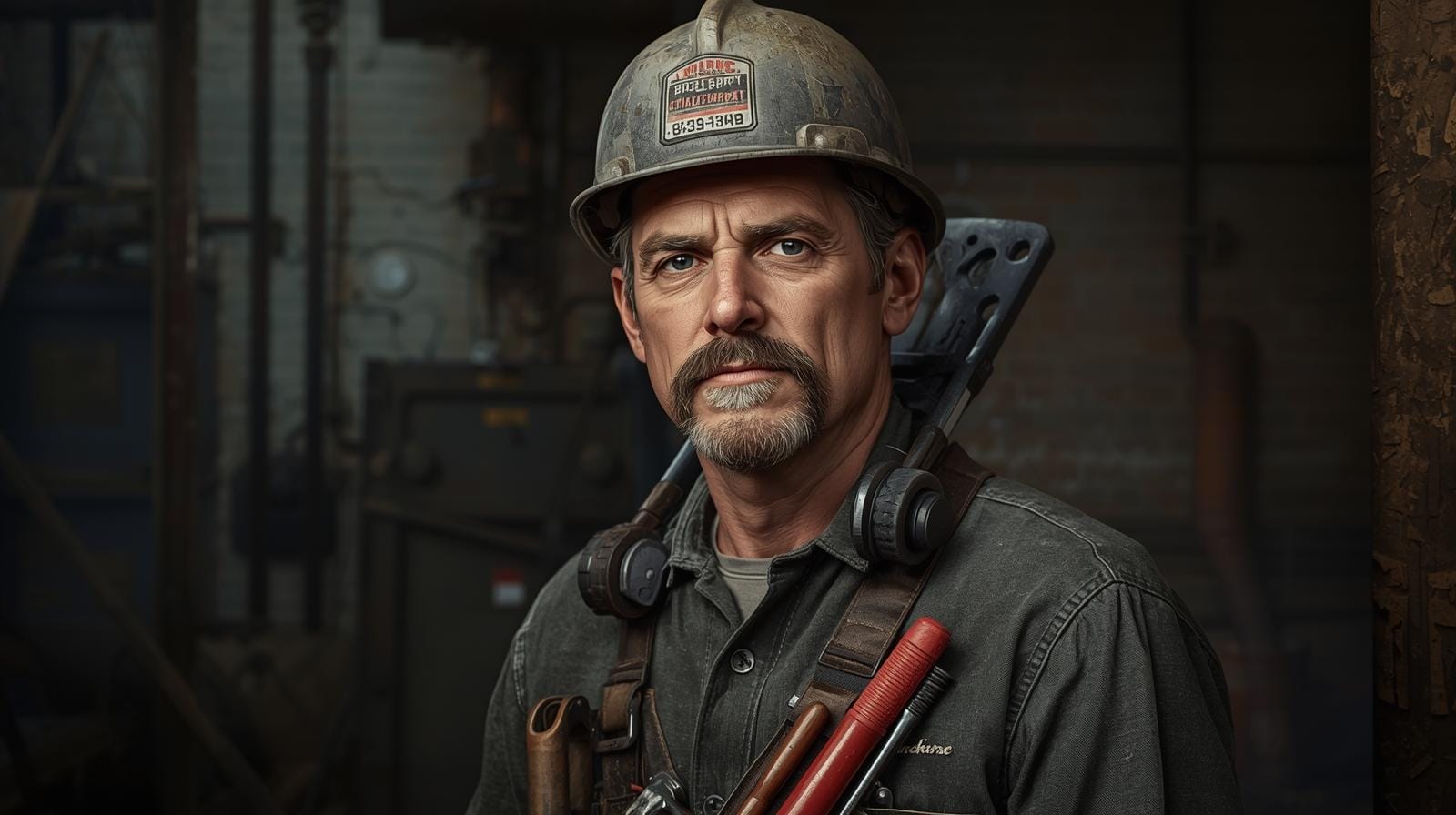
- Median Salary: $73,340
- Why It Pays: Hazardous environments, precision welding, and seasonal outage cycles that include heavy overtime and travel per diem.
- The Role: Assembling, installing, and maintaining boilers, tanks, and pressure vessels in energy and industrial sectors.
- How to Start: Enter a boilermaker apprenticeship; focus on SMAW/GTAW welding and rigging skills.
- Level-Up Fast: Add advanced welding tickets and target shutdowns/foreman roles to maximize high-paying travel and overtime.
- Top Markets: Gulf Coast energy corridor, Midwest industry, Pacific Northwest hydro/energy.
3. Building & Construction Inspectors: $72,120 Median

- Median Salary: $72,120
- Why It Pays: Every major project requires certified inspections; large GCs pay a premium for certified expertise in code and safety.
- The Role: Reviewing plans and inspecting structures for code, zoning, and safety compliance across all construction types.
- How to Start: Field experience (HVAC/electrical/carpentry) or an Associate Degree in construction technology, followed by ICC certifications.
- Level-Up Fast: Specialize (mechanical/electrical/fire) and stack ICC/state credentials for commercial projects.
- Top Markets: High-growth metros (TX, FL, Carolinas), seismic zones (CA), and coastal cities.
4. Plumbers & Pipefitters: $62,970 Median

- Median Salary: $62,970
- Why It Pays: Essential services with premium niches in healthcare, biotech, and heavy industry (steam, chemicals, high-pressure lines).
- The Role: Install and repair water, gas, and waste systems.
- How to Start: Join a union or merit-shop apprenticeship; complete OSHA-10 and master safety foundations.
- Level-Up Fast: Earn medical gas and backflow certifications; move into industrial or specialty piping to boost rates significantly.
- Top Markets: Healthcare/biotech hubs, cold-weather cities, and metros with major hospital/infrastructure buildouts.
5. Electricians: $62,350 Median

- Median Salary: $62,350
- Why It Pays: Sustained construction demand; rapid build-out in data centers; growth in solar, storage, and EV infrastructure.
- The Role: Install and maintain electrical systems in residential, commercial, and industrial settings.
- How to Start: Apprenticeship (IBEW or merit-shop). Master National Electrical Code (NEC) basics and advanced troubleshooting.
- Level-Up Fast: Specialize in industrial controls (PLC/VFD), data-center power, or solar/storage.
- Top Markets: Data-center corridors (VA, AZ, OH), coastal metros, and fast-growing Sun Belt cities.
6. Ironworkers: $61,940 Median

- Median Salary: $61,940
- Why It Pays: High skill and risk profile (working at height), specialized welding, and travel projects with high per-diem.
- The Role: Placing rebar; erecting structural steel for towers, bridges, and stadiums; performing rigging.
- How to Start: Ironworker apprenticeship emphasizing rigging, signaling, and fall protection.
- Level-Up Fast: Add structural welding tickets (vertical/overhead), become a connector/detailer, and take travel gigs for premium pay.
- Top Markets: Cities with sustained vertical construction and federally funded infrastructure projects.
7. Sheet Metal Workers: $60,850 Median
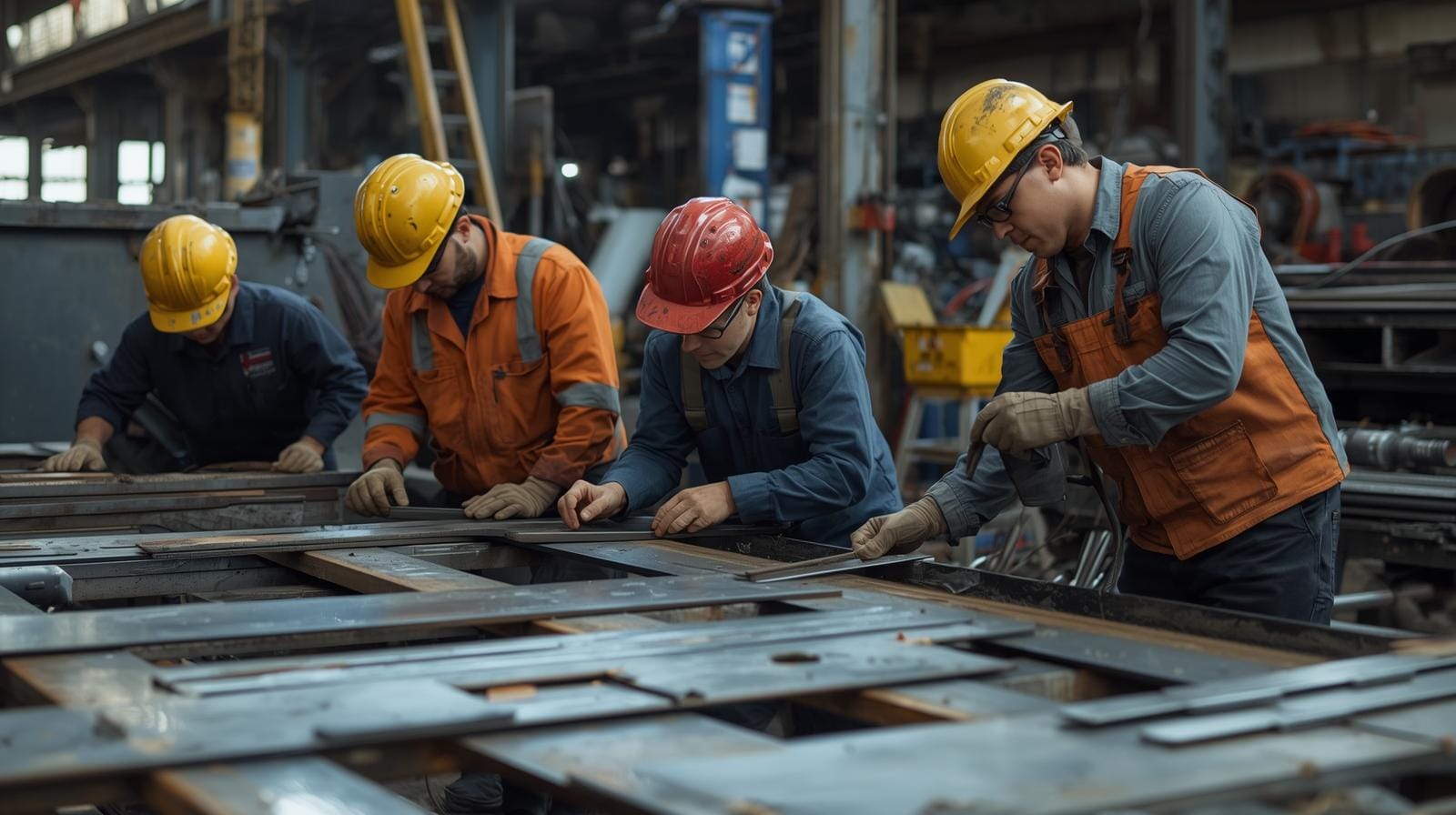
- Median Salary: $60,850
- Why It Pays: HVAC demand remains a core driver; precision fabrication and system balancing add significant value to project rates.
- The Role: Fabricating and installing HVAC ductwork, roofing/architectural metals, and commercial kitchen systems.
- How to Start: Apprenticeship (SMWIA or merit-shop); learn both shop fabrication and field installation skills.
- Level-Up Fast: Specialize in TAB (testing, adjusting, balancing), architectural metals, and CAD/CAM for shop drawings.
- Top Markets: Large commercial markets; union-dense metros with hospitals, campuses, and government buildings.
8. Carpenters: $59,310 Median

- Median Salary: $59,310
- Why It Pays: Ubiquitous demand with premium niches in commercial and high-end residential; clear pathway to supervision/foreman roles.
- The Role: Framing, installing, and finishing wood/composite materials across all construction types.
- How to Start: Entry-level helper leads to apprenticeship; focus on layout, productivity, and finishing standards.
- Level-Up Fast: Shift into commercial framing or specialty finish work; pursue the lucrative site supervisor track.
- Top Markets: High-growth metros, luxury residential pockets, and post-disaster rebuild zones.
The Talent Choice: Union vs. Non-Union
The best way to staff your firm is to hire talent that fits your company culture and the technician's career goals.
- Union Track: Offers structured training, negotiated wage steps, robust benefits (healthcare, pension), and a strong safety culture.
- Non-Union / Merit Shop Track: Potential for faster promotions and performance bonuses in some shops. Pay and benefits vary widely by employer quality.
Bottom Line: Many successful tradespeople try both over a career.
Best Places to Earn More: Why Geography Matters
For HVAC owners, knowing where the demand and talent competition are highest is critical for scaling and setting competitive pay.
- Coastal/Union-Dense Metros: Higher prevailing wages and larger commercial project pipelines.
- Data-Center Corridors: Electricians and controls specialists command the highest premiums.
- Healthcare/Biotech Hubs: Plumbers/pipefitters with med-gas/steam experience earn more.
- Industrial/Energy Regions: Boilermakers/ironworkers see maximum overtime and travel per-diem.
How to Get Started in 30 Days
Recruiting the next generation requires a clear, actionable plan. Here’s a 30-day roadmap for entry-level candidates:
- Week 1: Pick a trade; shortlist 3–5 apprenticeships near you.
- Week 2: Book your aptitude test; assemble Personal Protective Equipment (PPE).
- Week 3: Apply to 3 apprenticeships + 3 helper roles; line up two professional references.
- Week 4: Shadow a professional for a day, complete OSHA-10, and schedule your final interview.
Pro Tip: An OSHA-10 card, a basic tool list, and being PPE ready will make any candidate stand out on day one.
Frequently Asked Questions (FAQs)
- Which trade hits six figures fastest?
- Elevator/escalator installers often reach six figures quickest due to union apprenticeship + OEM training and regular overtime.
- Do apprenticeships pay?
- Yes. Most programs pay a stepping wage from day one, which increases as you progress. Benefits often include healthcare and pensions.
- Union or non-union—what’s better?
- Unions offer standardized training and benefits; non-union offers potential for faster promotions and bonuses. Evaluate the specific market and culture.
- Do I need my own tools?
- Basic hand tools help for entry roles. Apprenticeships often list required starter kits. Always bring full PPE to interviews and job shadows.
- Which certifications move the needle most?
- Electricians: PLC/VFD/controls. Plumbers: med-gas/backflow. Sheet Metal: TAB. Boilermakers/Ironworkers: advanced welding tickets. Inspectors: ICC stack.
Sources
- U.S. Bureau of Labor Statistics, Occupational Employment Statistics (May 2024)
- U.S. Bureau of Labor Statistics, Employment Projections ($\sim$2033)
Capture the 20-30% Call Spike.
See how FieldFactor adds 8–20% more jobs in 30 days.
FieldFactor is the booking factor for trade businesses. Start your 14-Day Free Trial now.
Visit www.getfieldfactor.com


